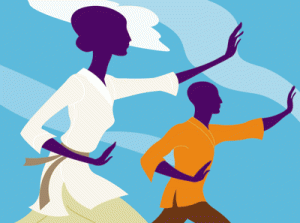Join us on Saturday, April 17th for our Vestibular Support Group, for individuals with dizziness, vertigo, or balance issues. This support group is set up as an open forum to meet other individuals in the community with vestibular disorders. We will also have Physical Therapists certified in vestibular rehabilitation available to answer any questions you may have about vestibular disorders or therapy.
We have a special guest speaker who will teach us how Tai Chi benefits individuals with dizziness and balance disorders as well as some basic moves.
If you are affected or have been affected by any of the following, please consider joining us:
- BPPV (Benign Paroxysmal Positional Vertigo)
- Peripheral or central vestibulopathy
- Vestibular migraine
- Meniere’s Disease
- Labrynthitis
- Tinnitus
We would love all of those affected by vestibular disorders to join us! Friends and family, as well as other support systems, are welcome.
Where: 3130 N Lincoln Avenue in Chicago, IL (60657).
When: Refreshments will be served at 11:30am. The meeting will begin at 12pm and will last for approximately one hour.
To RSVP, please call: 773-525-5200.
Join us on Saturday, April 17th for our Vestibular Support Group, located at our office at 3130 N Lincoln Avenue in Chicago, IL (60657). Refreshments will be served at 11:30am and the meeting will begin at 12pm and will last for approximately one hour.
We would love all of those affected by vestibular disorders to join us! Friends and family, as well as other support systems, are welcome.
To RSVP, please call: 773-525-5200.
…Keep moving!
It will be very difficult for dizzy patients to hear that they should keep doing their daily activities when their symptoms flare up. Their first instinct is to become inactive and take rest days. What will help your vestibular system is to rest until your symptoms settle down and then go back to your normal activities.
When you become active, you are training your brain to get used to different incoming signals. This in conjunction with daily vestibular exercises will help with rehabilitation of your vestibular system.
As posted recently by VEDA, this article written about the 3D movie Avatar has been an interesting find in the dizzy community. As the article states, watching 3D movies can cause symptoms of dizziness, nausea and headaches, similar to those symptoms of vestibular disorders.
How are these related?  Check out the article!
http://bodyodd.msnbc.msn.com/archive/2010/02/08/2197380.aspx
A recent study conducted in 2008-2009 showed that the martial art practice Tai Chi is an effective treatment for people with vestibular disorders.
Tai Chi is an practice incorporating slow movements of the body into different postures using your own body’s coordination. According to the American Academy of Otolaryngology, Tai Chi is helpful for those with balance disorders because it helps people concentrate on their own coordination.
Just a heads up, the next Vestibular Support Group will be taking place in February. Details will be announced soon!
Technology never ceases to amaze me. The amount of information we all have at our fingertips is astounding.
Learn more about your inner ear and how it affects your balance in this quick, 90 second video.
http://www.youtube.com/watch?v=BbKU0AbbARg
Enjoy!
New Year’s Resolutions are always easy to state and hard to maintain. Lose weight, exercise every day, be nicer to your mother, the list of possibilities are endless.
One senior in Boston, Gail Hunter, came up with the right resolution in an effort to age gracefully: Exercise to maintain your sense of balance.
And she is completely correct.
Physical therapy can do wonders for dizziness and balance disorders, one of them being BPPV. Gail states some statistics in her article from VEDA that 50% of dizziness in the elderly is caused by BPPV and dizziness and imbalance are symptoms experienced by 40% of adults 40 years or older. If you are one of these individuals, therapy with a PT trained in vestibular rehabilitation can get you feeling like a million bucks! (And don’t be afraid to ask for your PTs credentials.)
Check out Gail’s full article:
Our new patients in their evaluation often tell us that the initial way that they realized that they had a vestibular disorder was that they turned over in bed and felt a wave of dizziness come over them. This is a key indicator that our patient may have BPPV. BPPV is treatable through physical therapy and through maneuvers like the Epley Maneuver.
Check out the other signs of BPPV:
http://www.mayoclinic.com/health/vertigo/DS00534/DSECTION=symptoms
Are you concerned that you may have a balance disorder? Take this self-test to determine whether you should go see an ENT or neurologist about a potential balance/neurological disorder.
http://resourcesonbalance.com/patient_info/printout.aspx
If you answer “yes†to one or more of the questions, you could be at risk. Make sure you consult with your physician or an ENT/neurologist.



No comments:
Post a Comment